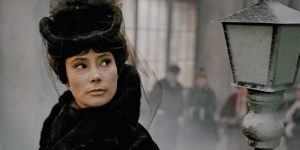

(“I am in a very bad mood,” he wrote to a friend. Peter the Great turned out to be too epic a subject even for Tolstoy. Starting in 1870, he had shut himself up in his study at Yasnaya Polyana, reading and making notes, while his wife and their enormous brood of children tried to keep quiet outside. In 1873, when Tolstoy began writing “Anna Karenina,” he was in the midst of planning a historical novel about Peter the Great. When he turned to “Anna Karenina,” Tolstoy didn’t simply leave behind the themes of “War and Peace.” Instead, he found a way of thinking about many of same issues that had always interested him-fate, chance, our powerlessness against circumstances and our determination to change them-in a different context. Those thoughts aren’t very romantic, but they are Tolstoyan. But this love-story idea of love isn’t really native to “Anna Karenina.” Tolstoy, when he wrote the novel, was thinking about love in a different way: as a kind of fate, or curse, or judgment, and as a vector by which the universe distributes happiness and unhappiness, unfairly and apparently at random. When they come, you applaud, and feel they’re well-deserved when they don’t, you try to figure out what the lovers did wrong. You think about the protagonists and their choices you root for happy endings. I read the novel as you might read any novel about marriage and adultery. I was twenty-three, and thinking of getting married to me, it was obvious that the novel was about love, good and bad, wise and unwise. When I first started reading “Anna Karenina,” ten years ago-I’m obsessed with the book, and have read it seven times since then-I, too, thought of it as a love story. If anything, “Anna Karenina” is a warning against the myth and cult of love. The film, as Wright promised, is all about love, but Tolstoy’s “Anna Karenina” isn’t a love story. The problem, I think, is that it’s too romantic. Still-if you know and love the novel, something about the movie just doesn’t feel right. Knightley plays Anna with an edgy sensuality Vronsky’s steeplechase is vivid and terrifying the Levin and Kitty story is sweet, patient, and even spiritual. The sets are inventive and metafictional. Wright’s “Anna Karenina” isn’t a straight-forward adaptation of the novel, but a fanciful, expressionistic reinterpretation of it, with a knowing, self-conscious screenplay by Tom Stoppard.


 0 kommentar(er)
0 kommentar(er)
